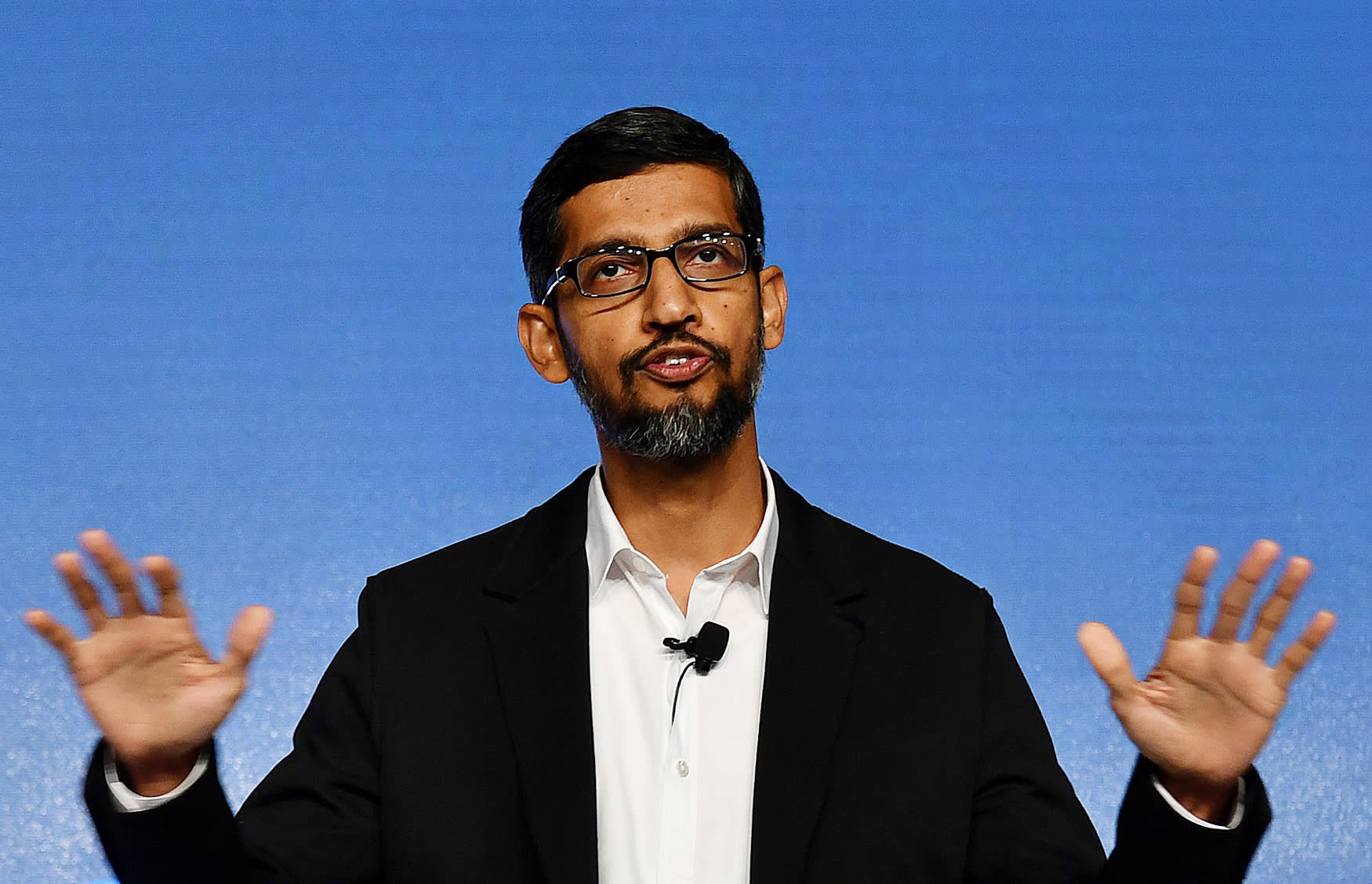Sundar Pichai, CEO of Google
Anindito Mukherjee | Bloomberg | Getty Images
Employees in charge of Google’s relationships with universities are asking executives to set clearer goals around diversity, claiming that the company’s difficulty retaining non-White employees hurts recruiting, according to an internal email viewed by CNBC.
The company’s University Programs team represents Google to colleges and oversees outreach, events, internships and career opportunities at the company. Employees on that team originally sent a letter to Google director of people operations Kyle Ewing in June, following nationwide protests over the police killing of George Floyd, an unarmed Black man.
The letter shows employee dissatisfaction with executives’ actions thus far in terms of recruiting diverse employees, and outlines a list of ways to clarify the roles and goals of University Programs employees, petitioning for things such as pay data and a “more rigorous” interview process for White applicants before taking on a role that touches diversity.
“We are the first step in shaping what Google will look like in the next year, two years and beyond,” the letter states. “It is crucial that we are working towards building a culture of inclusion and each UPer should be assessed on that, especially since our work directly ties back to increasing representation. We don’t want to bring in talented students who end up leaving because the future isn’t what they thought it would be.”
“We deeply appreciated this email, which we received in June, and all Googlers taking an active part in our racial equity commitments,” said a Google spokesperson. “We are working on turning these concrete commitments into lasting, meaningful change.”
‘We want this conversation to be different’
In late June, after the Floyd killing, Google CEO Sundar Pichai said the company would commit $175 million toward supporting black businesses and said it plans to increase “underrepresented” people in its leadership by 30% by the year 2025.
However, since then, some employees have questioned the depth of these public commitments to racial justice and diversity programs amid reports of malfunctioning employee resources.
While Google has touted its diversity hiring initiatives through recent years, it has made little progress in actually building and maintaining a diverse workforce. Attrition rates for Google’s Black U.S. employees remain stagnant from a year ago at 12% — higher than the average Google employee — with Black females seeing a particular spike in attrition from last year (up 18%), according to the company’s 2020 diversity report. That represents slow but staggered progress from the 27% attrition rate the company saw when it first reported those statistics in 2017.
While the letter praised Ewing for her “openness and willingness to speak about the convoluted issues of race and equity are much needed,” it also suggested more discussion of why such efforts are needed within the organization, as well as more accountability from leadership.
“Though there has been renewed focus on this subject matter recently — it has been an area of hurt, frustration and insurmountable fatigue for many of us for a long time,” employees wrote. “As such, we want this conversation to be different; we want to ensure accountability and the right actions are taken.”
In particular, the list includes a call for improving retention by cultivating and growing Black and LatinX talent already within the organization, some of whom are at risk of leaving.
It also called executives to build an “accountability system” where all managers are required to an “audit” that includes providing time and pay data of University Programs employees of color at each level compared to White team members — past and present.
“Many white UPers have received their quick promotions and since left the team for bigger opportunities,” the letter states. “Does it take a member of a minoritized group longer to be promoted at Google? If so, why and how?”
The letter asks the company to incorporate diversity organizations such as employee resource groups in staffers’ performance and promotion considerations, recognizing it as a core part of their roles as opposed to an extracurricular activity.
“As Sundar mentioned in his email on our racial equity commitments, ‘Creating meaningful change starts within our company,'” the group wrote.
WATCH: Why tech companies struggle with diversity and inclusion

